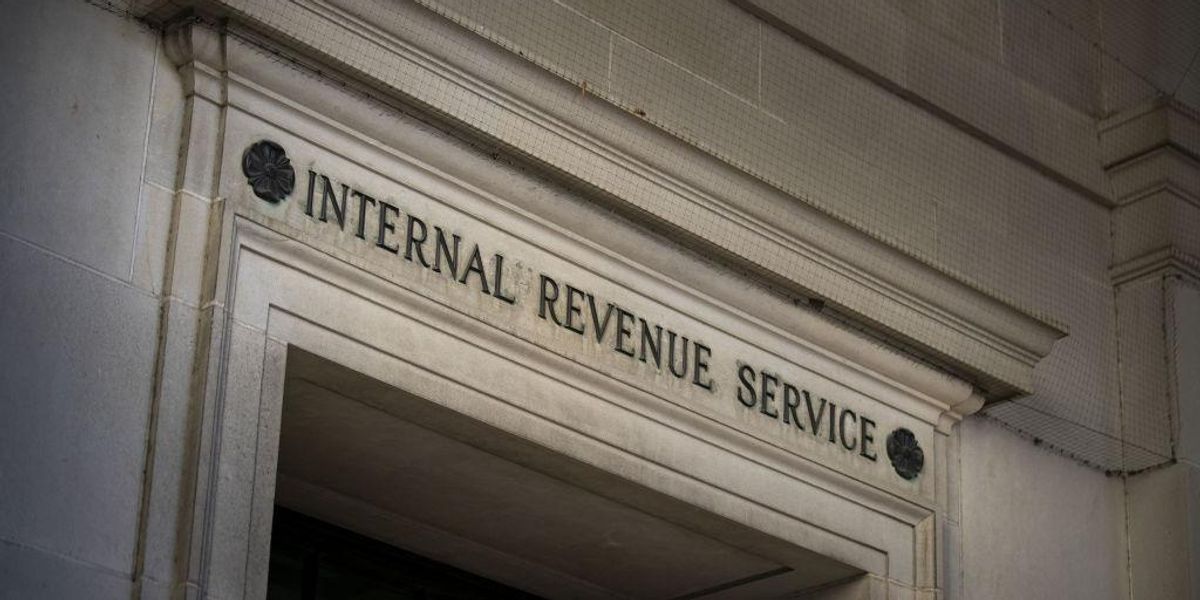- Oct 31, 2012
- 53,583
- 52,303
- 3,605

Report: Almost half of 2021 IRS audits targeted poorest taxpayers | Blaze Media
The Internal Revenue Service targeted the nation's lowest-income taxpayers in nearly half of its audits last year, an eye-opening new report shows.What are the details?The report, published Tuesday by the Transactional Records Access Clearinghouse, found that approximately 307,000 of the IRS'...
 www.theblaze.com
www.theblaze.com
The Internal Revenue Service targeted the nation's lowest-income taxpayers in nearly half of its audits last year, an eye-opening new report shows.
What are the details?
The report, published Tuesday by the Transactional Records Access Clearinghouse, found that approximately 307,000 of the IRS' 660,000 audits from fiscal year 2021 were from among taxpayers who claimed the Earned Income Tax Credit, a credit designed to give low-income workers a tax break.The strange targeting resulted in "low-income wage earners with less than $25,000 in total gross receipts being audited at a rate five times higher than for everyone else," TRAC said.
TRAC is a nonprofit and nonpartisan data gathering organization at the S.I. Newhouse School of Public Communications at Syracuse University that collects and distributes data from federal agencies.
In 2021, Americans with total positive income $200k to $1M were audited at the rate of 4.5 out of every 1,000. \n\nAmericans with less than $25,000 in total gross receipts were audited at a rate of 13.0 out of every 1,000.\n\nRead the report here: https://trac.syr.edu/tracirs/latest/679/\u00a0\u2026
— TRAC Reports (@TRAC Reports) 1646759354
What else?
The report also found that taxpayers with a total yearly income of between $200,000 and $1,000,000 had only one-third the odds of being audited in comparison to the lowest-income wage earners.Don't miss out on content from Dave Rubin free of big tech censorship. Listen to The Rubin Report now.
Nearly 9 million taxpayers reported those high-income levels, yet less than 40,000 of their returns, or 4.5 out of every 1,000, were audited by the IRS, the report said. The lowest-income earners were audited at a rate of 13.0 out of every 1,000.
The audit rate for poorer taxpayers was shockingly more comparable to the audit rate for those reporting earnings over $1 million. Out of 617,505 millionaire returns, 13,725 were audited, or 22 out of every 1,000.
Austin Kocher, an assistant professor at TRAC reports and Syracuse, called the audits clearly "unfair" in a statement on Twitter.
During FY 2021 IRS revenue agents and tax examiners audited 13,725 taxpayers reporting $1 million dollars or more in positive income, up from the small numbers audited during FY 2020 (11,331), but still slightly below FY 2019 (13,970).
Anything else?
"Does it make sense from either an equity or revenue standpoint to focus IRS’s limited firepower on the poorest taxpayers among us — those with incomes so low they have filed returns claiming an anti-poverty earned income tax credit?" TRAC asked in its report, adding, "This question alone raises profound issues."Given the sheer amount of resources at stake, it seems odd that the IRS wouldn't exhaust more of its manpower on audits of wealthy Americans.
The organization noted, however, that such a bias toward IRS auditing of poorer Americans is not necessarily a new phenomenon. Rather, the bias has been demonstrable for decades, though to varying degrees.
Part of the problem, TRAC explained, is a lack of IRS revenue agents with sufficient training and experience to examine complex tax returns typically filed by high-income individuals and large-scale businesses.


